Biogeochemical Cycles | Botany Optional for UPSC PDF Download
| Table of contents |

|
| Introduction |

|
| The Nitrogen Cycle: Nourishing Life |

|
| Gaseous and Sedimentary Cycles: The Two Facets |

|
| Nutrient Recycling in Biogeochemical Cycles: A Lifeline |

|
Introduction
Biogeochemical cycles, intricate natural processes, are fundamental to the circulation of essential elements necessary for life on Earth. These cycles encompass the interplay of biological, geological, and chemical factors, each contributing to the intricate dance of elements within ecosystems. Below, we delve into the fascinating world of biogeochemical cycles, exploring their types, reservoirs, and the vital role they play in maintaining the delicate balance of life on our planet.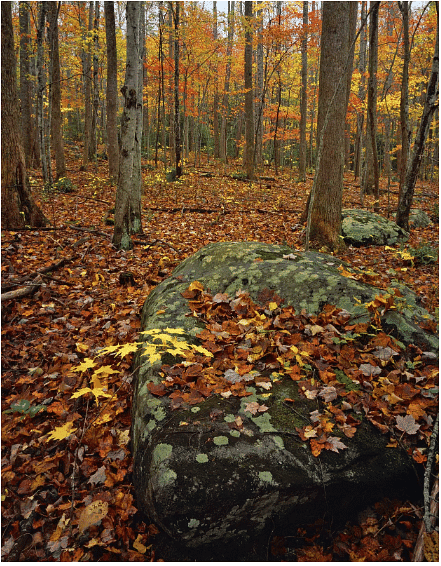
The Nitrogen Cycle: Nourishing Life
In biogeochemical cycles, a crucial concept is the transition of elements between nonliving (abiotic) components of the biosphere, like soil or water, and the living (biotic) components, such as plants and animals. This constant movement of elements is essential for the survival of ecosystems. In essence, the biogeochemical cycle of an element consists of two main components: a reservoir or nutrient pool and an exchange or cycling pool.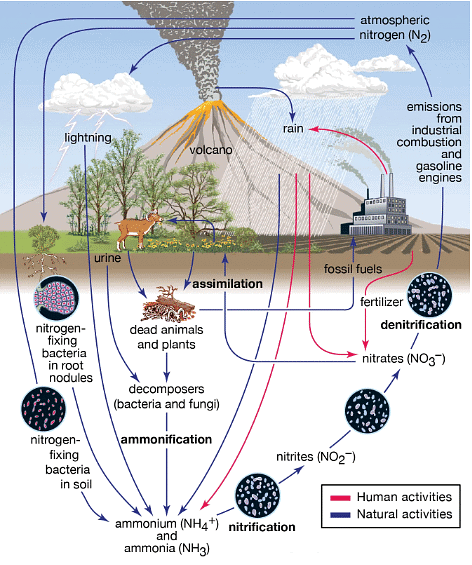 Nitrogen Cycle
Nitrogen Cycle
Gaseous and Sedimentary Cycles: The Two Facets
Biogeochemical cycles are often categorized into two primary forms: gaseous and sedimentary.
- Gaseous Cycles: These cycles, including nitrogen, oxygen, carbon, and water cycles, predominantly involve the atmosphere or the oceans as their reservoirs. Elements in gaseous cycles move more rapidly and adapt swiftly to changes in the biosphere due to their vast atmospheric reservoirs. For instance, excess carbon dioxide (CO2) in a particular region can be swiftly dispersed by winds or absorbed by plants. However, these cycles can be sensitive to disturbances, both local and global, like wildfires and climate change, affecting their ability to self-regulate.
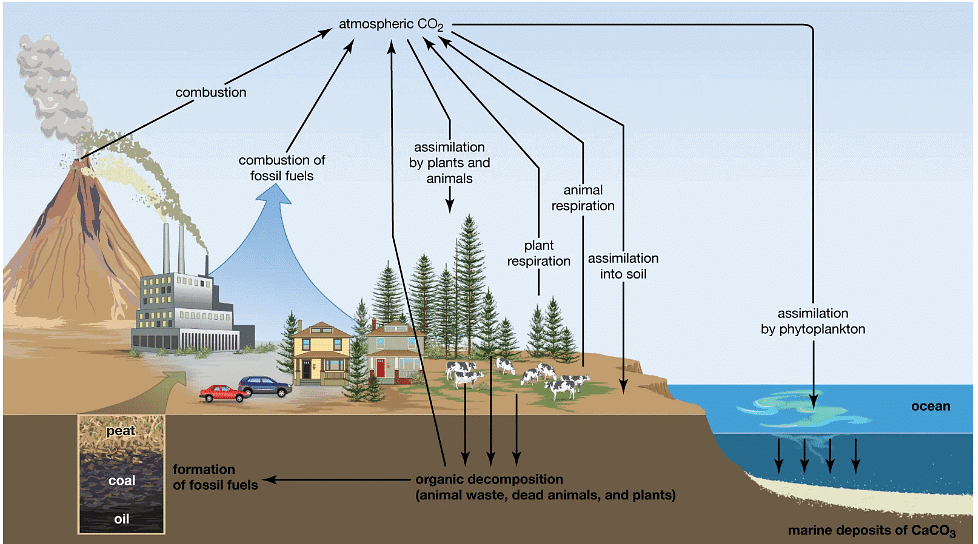 Carbon Cycle
Carbon Cycle
- Sedimentary Cycles: In contrast, sedimentary cycles, which encompass elements like iron, calcium, phosphorus, and sulfur, have Earth's crust as their primary reservoir. These cycles consist of two phases: a solution phase and a rock phase. In the solution phase, weathering processes release minerals from Earth's crust, some of which dissolve in water, traverse various organisms, and eventually settle in deep-sea sediments, where they can remain indefinitely. In the rock phase, salts deposit as sediment and rock in shallow seas, only to be weathered again and re-enter the cycles.
 Hydrologic Cycle
Hydrologic Cycle
Nutrient Recycling in Biogeochemical Cycles: A Lifeline
- One of the central tenets of biogeochemical cycles is the concept of nutrient recycling. Living organisms, from the tiniest microorganisms to the largest mammals, acquire the nutrients they need from their environment. Some organisms, like plants, draw nutrients directly from the soil or water, while others, like carnivores, acquire them indirectly by consuming other organisms.
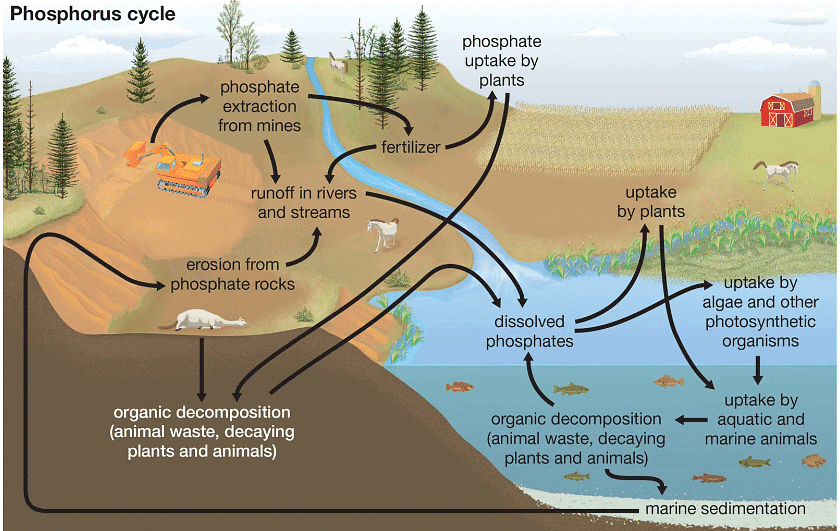
- However, when these organisms die, the biogeochemical cycle ensures that their constituent elements are not lost. Decomposers, including bacteria, insects, and fungi, play a vital role in breaking down organic matter, returning essential nutrients to the environment. This recycling process ensures that nutrients remain available for the next generation of life, contributing to the resilience and sustainability of ecosystems.
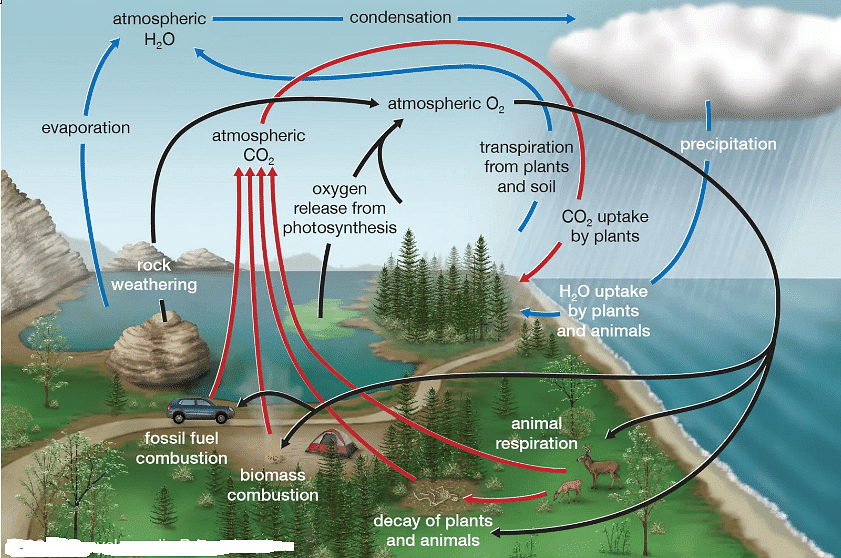 Oxygen Cycle
Oxygen Cycle
- In summary, biogeochemical cycles are the invisible threads that weave the tapestry of life on Earth. Through the intricate interplay of biological, geological, and chemical processes, these cycles sustain the flow of essential elements, enabling ecosystems to thrive and adapt to changing conditions. Understanding these cycles is crucial for our stewardship of the planet, as they underpin the delicate balance of life on Earth.
|
179 videos|143 docs
|














